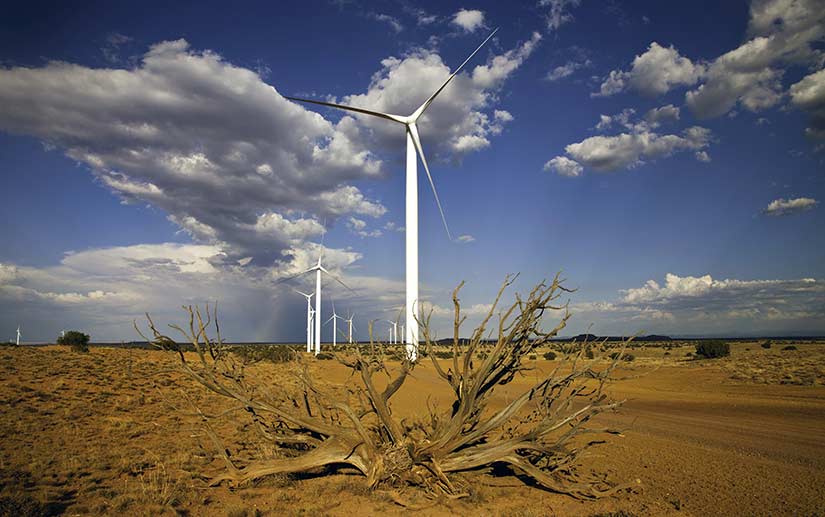How Might Climate Change Impact Energy Systems?
Literature Deep Dive Brings the Big Picture into Focus

Over the span of just eight years, the number of publications studying climate-change impacts on the energy sector jumped from but a few papers annually to more than 30 in 2019. This surge highlights growing academic interest in how a changing climate could impact many aspects of our world—particularly when it comes to planning and operating the systems that power it.
While the knowledge base around climate-driven impacts on energy systems has grown in recent years, there remains a lack of common understanding of the impacts across spatial scales and other aspects of energy systems. To help consolidate the current knowledge and identify future research directions, a team of researchers led by Seleshi Yalew of Delft University of Technology that included National Renewable Energy Laboratory (NREL) analyst Ariel Miara reviewed a collection of 220 studies that projected climate impacts on energy systems for a recent article in Nature Energy.
The international team evaluated energy system impacts in terms of supply, demand, and integrating systems. Supply-side concerns encompassed renewable energy potential from solar, wind, bioenergy, hydropower, and thermal power plants; demand-side involved the duration and magnitude of heating and cooling requirements. Integrating systems included costs and transport/transmission systems. Zeroing in on both regional and global scales, the researchers found that anticipated impacts vary substantially, by both region and energy source.
“Our assessment shows that although research in this area is growing, climate impacts on energy systems at regional and global scales are uncertain due partly to the wide range of methods and non-harmonized datasets used across studies,” Miara said. “Because of this, the field would benefit from a collaborative multi-model assessment that, as suggested in the paper, can provide a more systematic and coherent approach to understanding the implications of climate change on energy systems and the corresponding adaptation opportunities.”
Compared to the number of papers on climate impacts on other sectors, such as agriculture and water, there are relatively few papers that have taken a comprehensive view of how climate change could impact our energy systems. And because of the variety of models and methodologies employed across energy system studies, it remains a difficult task to compare and synthesize results.
To overcome these challenges, the researchers suggest the development of a systematic, harmonized assessment approach. This methodology would provide a comprehensive view of climate change impacts on energy systems while allowing researchers to distinguish structural (i.e., different models) versus statistical (i.e., differing assumptions) uncertainties.
Adoption of this inter-sectoral approach could produce important data points for a wide range of energy planning activities, from informing Intergovernmental Panel on Climate Change assessment reports and processes surrounding the Paris Agreement, to providing a better understanding of the synergies and trade-offs between affordable, clean energy and climate action.
Learn more about NREL’s energy analysis work.
Last Updated May 28, 2025
